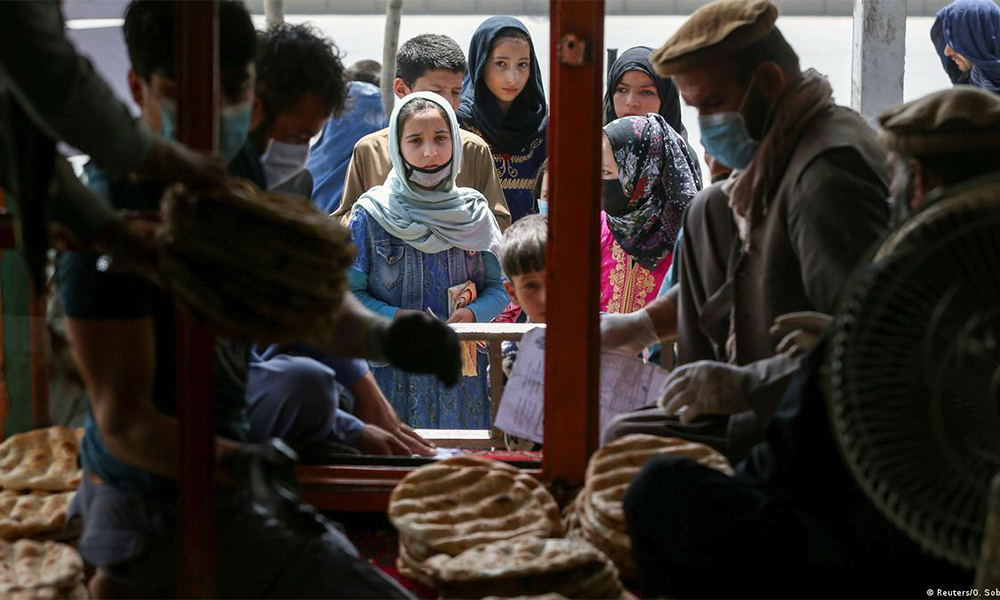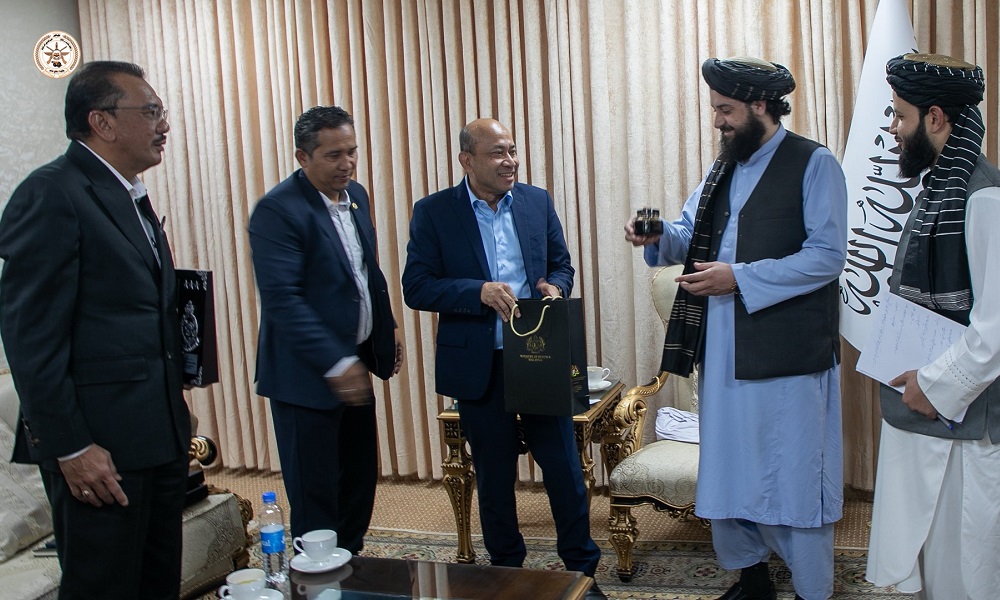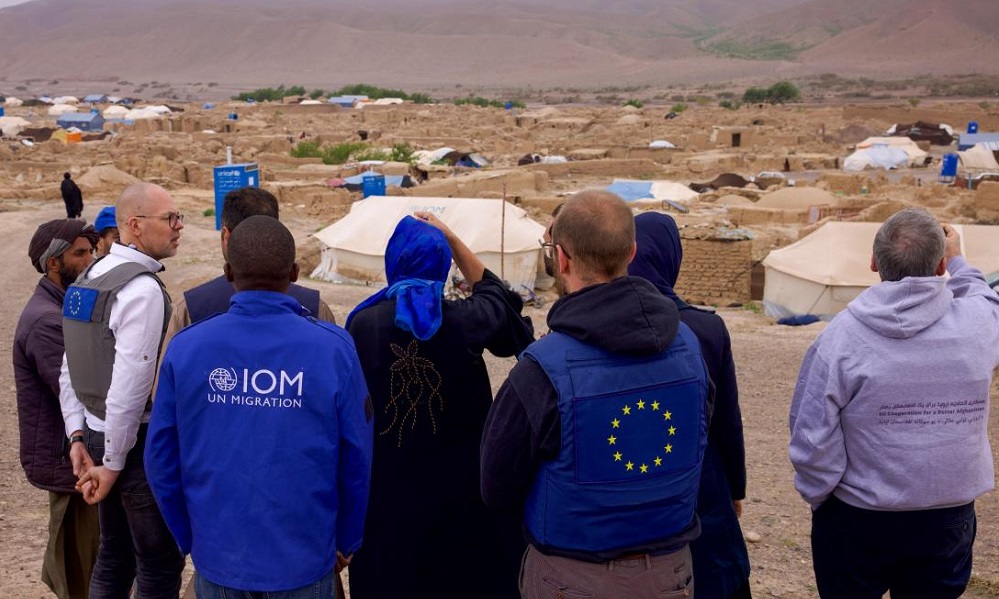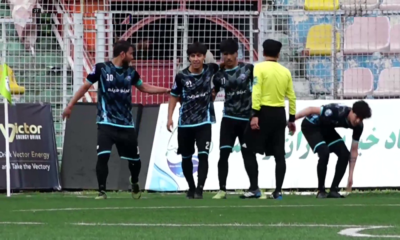Latest News
World Bank survey finds living conditions remain dire for Afghans

Living conditions remain difficult for Afghan families as two-thirds of households in the country continue to struggle to meet basic food and non-food needs, a new World Bank survey published Tuesday found.
Conducted between June and August 2022, the second Afghanistan Welfare Monitoring Survey assessed changes in basic living conditions in Afghanistan one year after the collapse of the former government.
The survey paints a grim picture of living conditions in Afghanistan as widespread deprivation continues and food insecurity remains high, negatively impacting the economy and the welfare of the Afghan people, especially women and girls.
Around two-thirds (65 percent) of respondents believe that the economic conditions of their household will worsen over the next 12 months.
“It is deeply concerning to see that a majority of Afghan households continue to face enormous economic difficulties and that access to education – especially for girls – remains severely constrained,” said Melinda Good, World Bank Country Director for Afghanistan.
“There is an urgent need for the interim Taliban (IEA) administration to take tangible steps to improve food security and livelihoods, maintain basic health services, and ensure that the private sector can play a role to create jobs for the many Afghans, particularly young people, who are unemployed. Without this, the welfare of the Afghan people, especially women and girls, remains at risk.”
The survey found that rising food prices and the persistent effects of last year’s drought are among the main reasons for limited access to and affordability of food. “It signals more significant deprivation in the coming winter months,” the reported warned.
However, employment among household heads increased by seven percent between October 2021 and June 2022, with a slight uptick in private-sector salaried work, while public-sector employment remains much lower.
Nine percent of household heads were salaried in private-sector jobs, while more young men (ages 14-18) and older men (ages 55-65) seek work but cannot find it, fueling unemployment.
In contrast, many more women across all age groups report becoming economically active, with female labor force participation doubling relative to 2016 or 2020. Women are working predominantly in home-based self-employed activities, the report stated.
At the national level, primary school enrollment is as high as it was in 2016, primarily driven by increased enrollment of children in rural areas. In urban areas, primary school enrollment for girls and boys remains below the levels observed in 2016.
Secondary school enrollment rates for boys appear stagnant in rural areas and have declined in urban areas as older boys drop out of school to seek jobs in an increasingly difficult labor market, the survey found.
Girls’ secondary school attendance has collapsed, particularly in urban areas, from 44 and 50 percent in the summers of 2016 and 2020 respectively, to just 12 percent in the summer of 2022. “This finding is consistent with the current closure of secondary schools for girls under the interim Taliban(IEA) administration,” the report stated.
Medical services meanwhile continue to be available, as only eight percent of individuals who needed health services were unable to obtain them. Little differences in access are reported between urban and rural areas and women were able to access healthcare services, public and private, at the same rates as men, the World Bank noted.
On security, the report noted that perceptions had improved, with two-thirds of households reporting that they feel safer than a year ago. However, the same is not true in the Central and West-Central regions, where more households report feeling less safe than a year ago.
Latest News
Tripartite trade meeting held in Kabul to boost regional connectivity

A tripartite meeting between the delegations of Afghanistan, Turkmenistan and Kazakhstan was held in Kabul with the aim of connecting North Asia to South Asia and reducing transit and transportation costs among these three countries, the Ministry of Trade and Commerce said in a statement.
In this meeting, an agreement was reached on the creation of a joint technical committee to continue the talks.
This tripartite meeting was held under the leadership of Nooruddin Azizi, the Acting Minister of Industry and Commerce, Vice President of Turkmenistan and Srik Zhumangarin, the Deputy Prime Minister of Kazakhstan.
Earlier, a bilateral meeting was held between the delegation of the Islamic Emirate and Turkmenistan. The ministry of commerce said the participants of the meeting discussed the construction of a large joint logistics center in Torghondi, the trilateral transit agreement between the IEA, Turkmenistan, and Kazakhstan, the expansion of Afghanistan’s railway, solving issues related to Afghan transit and export goods, and a number of other commercial issues.
Latest News
No destructive groups including Daesh present in Afghanistan: Yaqub Mujahid

Acting Minister of National Defense Mohammad Yaqub Mujahid has said that no destructive groups including Daesh have physical presence in Afghanistan, adding the Islamic Emirate of Afghanistan (IEA) will not allow anyone to pose threat to any country in the region from the Afghan soil.
Mujahid made the remarks in a meeting with a delegation from Malaysia in Kabul on Thursday.
According to a statement released by the Ministry of Defense, Mujahid highlighted Malaysia’s “good treatment” of Afghan refugees and its long-standing relations with Afghanistan, and said that Malaysia is a powerful Islamic country and visits should increase.
He added that with the establishment of the Islamic Emirate, occupation and war ended in Afghanistan, and the country is fully secure.
Based on the statement, the Malaysian delegation called Afghanistan a friendly country and while emphasizing on comprehensive cooperation, it assured that what they have seen in Afghanistan will be shared with the authorities of their country.
Latest News
EU allocates 17 million euros to support Afghans on the move

The European Union signed an agreement worth 17 million euros with the International Organization for Migration (IOM) to improve access to basic services, increased economic opportunities and protection for Afghans on the move and their host communities in Afghanistan.
The needs of women and girls are a particular focus of the programme, EU said in a statement released on Thursday.
The statement noted that from January 2023 until April 2024, over 1.5 million Afghans returned from Pakistan and Iran.
“I am deeply moved by the hardship returnees face when being deported to Afghanistan. In a country suffering from poverty and climate change, and in a city that just saw devastating earthquakes, this truly is a crisis within a crisis.”, said Peteris Ustubs, Director for the Middle East, Asia and Pacific of the European Commission’s Department for International Partnerships during the signing ceremony at the IOM transit centre in Herat.
Raffaella Iodice, EU Chargée d’Affaires a.i. to Afghanistan, added “The solidarity of the Afghan people towards their brothers and sisters is an inspiration. We must assure that communities hosting and helping new arrivals are supported. The partnership with IOM ensures access to essential services and provides protection for Afghan returnees and their host communities. As women and girls can be particularly affected, we make sure that all members of society can benefit”.
“IOM’s continued partnership with the EU has been critical in enabling our teams to reach hundreds of thousands of Afghan returnees and other vulnerable communities in the country”, said IOM Afghanistan Chief of Mission, Maria Moita. “Thanks to this renewed commitment, we will be able to focus on addressing the immense challenges in the areas of return and contribute to reintegration, social cohesion, and longer-term solutions for those communities.”
This additional contribution is part of a 5-year programme that is being implemented across Afghanistan and in four countries in the region. It builds on the EU’s previous support to IOM to improve the wellbeing of Afghans forced to return to the country, EU said.
-

 Latest News3 days ago
Latest News3 days agoRashid Khan named AWCC’s brand ambassador
-

 Regional4 days ago
Regional4 days agoIranian president lands in Pakistan for three-day visit to mend ties
-

 Sport4 days ago
Sport4 days agoKolkata beat Bengaluru by one run in IPL as Kohli fumes at dismissal
-

 Sport5 days ago
Sport5 days agoACL: Aino Mina 3-0 Istiqlal Kabul; Attack Energy 3-0 Khadim
-

 Climate Change4 days ago
Climate Change4 days agoRescuers race to reach those trapped by floods in China’s Guangdong
-

 World3 days ago
World3 days agoMalaysian navy helicopters collide in mid-air, 10 killed
-

 Sport3 days ago
Sport3 days agoJaiswal ton powers Rajasthan to big IPL win
-

 Sport4 days ago
Sport4 days agoMawj Sahil player scores stunning halfway line goal in 1-0 win over Jawanan Wahedi
























